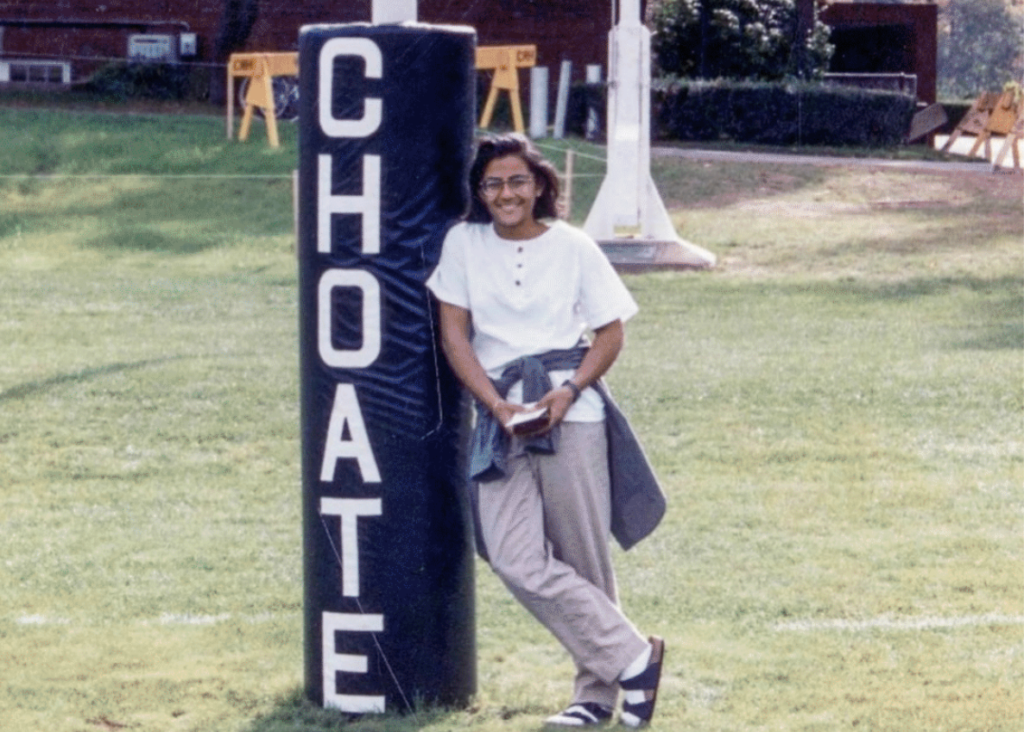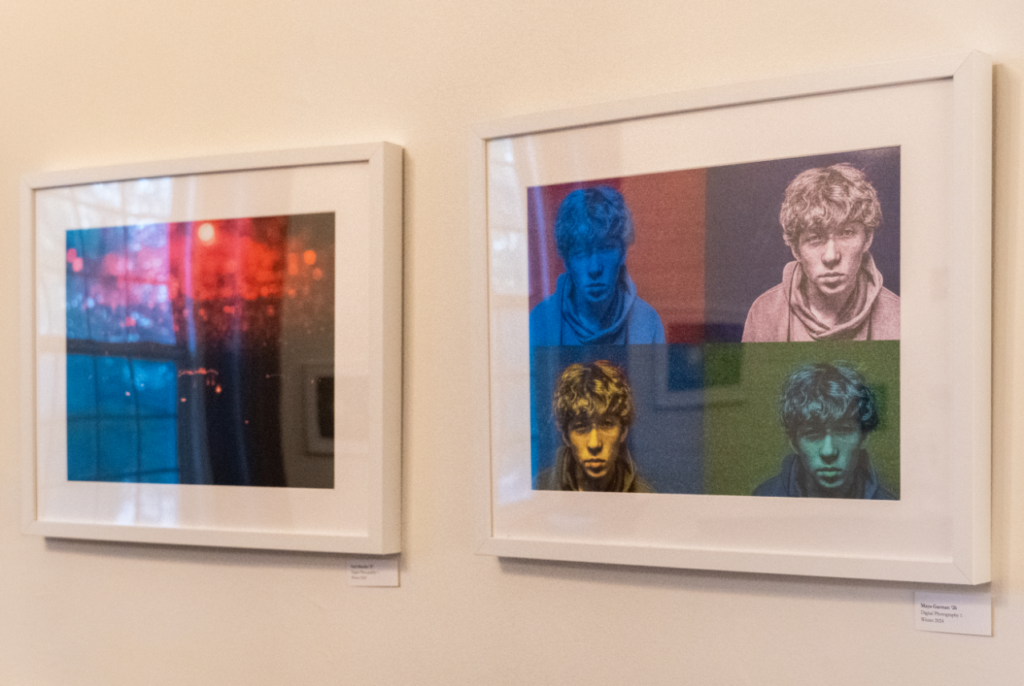By Ethan Zhang ’26

Bramhandkar during her time as a student at Choate.
On April 5, first-generation immigrant and Choate alumna Dipti Bramhandkar ’96 visited campus and performed her one-person play, American Rookie, in the Paul Mellon Arts Center (PMAC) Little Theater. American Rookie is Bramhandkar’s own autobiographical story depicting her dynamic upbringing and “what it means to be an immigrant at a time when the country can’t stop talking about it.”
At a young age, Bramhandkar moved from Mumbai, India to central New York. In 2016, after spending her youth in New York, she was compelled to write American Rookie because of a jarring racially-charged incident: a group of men verbally assaulted her mother outside of an Italian restaurant. Originally, American Rookie was only meant to be an article she hoped to publish. However, after discussing with a few trusted friends, Bramhandkar was convinced to transform her article into a solo show.
With American Rookie, Bramhandkar hoped to share her experience navigating her cultural identity as a coming-of-age tale about her upbringing. “[writing American Rookie]was a personal need to address what happened [to my mother] … and I wanted to tell the story of someone who faced the static of code-switching and assimilation,” she explained.
Bramhandkar’s experience at Choate shaped her use of social commentary and comedic satire in American Rookie. Reflecting on her experience at the School, Bramhandkar said, “[Choate] was the first time where I thought being Indian was actually interesting. It was a place where we were encouraged to talk about our culture.”
Bramhandkar wanted to include Choate’s influence on her ideas of cultural identity in American Rookie, and her script mentions the School directly: “Choate Rosemary Hall. It wasn’t just a school. It was a hall! … On move-in day I saw a sign that said, ‘Culture Club.’ Wait a second! They wanted people to come out and say that they’re not from America?”
Choate students received Bramhandkar’s coming-of-age tale well. “American Rookie gave me more insight on someone’s experiences immigrating from different countries,” Norah Davis-Jeffers ’26 said. “Seeing that in such a personal play was very powerful.” Following the performance, Davis-Jeffers also had the opportunity to speak with Bramhandkar in Lanphier Center and her Acting II class. “We talked about playwriting, and she pitched us some of her ideas for future plays and projects,” Davis-Jeffers shared.
Similarly, Friday Acuna ’26 resonated with and was inspired by American Rookie. “As a person of color, it’s awesome to hear someone go out there and talk about their experience,” Acuna said. “My parents were also immigrants, and I felt empowered to write my own story.”
Bramhandkar felt her return to campus was an insightful experience, shaped by her personal growth and Choate’s affirmation of diversity, equity, and inclusion. “Attending a post-colonialism class, I was just amazed at how in-depth and robust the conversations were,” she said. “And I think coming back as a more formed person and confident in my Indian-ness helped me appreciate it more.” Bramhandkar was also proud to see how much the Choate community has grown regarding diversity and inclusion because “back then, there weren’t a lot of affinity groups,” she said.
Through sharing her experiences of cultural identity, Bramhandkar kindled inspiration and sparked conversations between students. Acting teacher Mr. Bari Robinson hopes to welcome more alumni like Bramhandkar in the future to learn and take inspiration from. “ [Bramhandkar] showed if you have a truth you want to speak, it will come through in whatever style you want,” he said.
Davis-Jeffers would also like to see more artistic alumni. She said, “It was great getting a different insight from a person of a different background, and I hope I have the chance to see that again in the future.”




